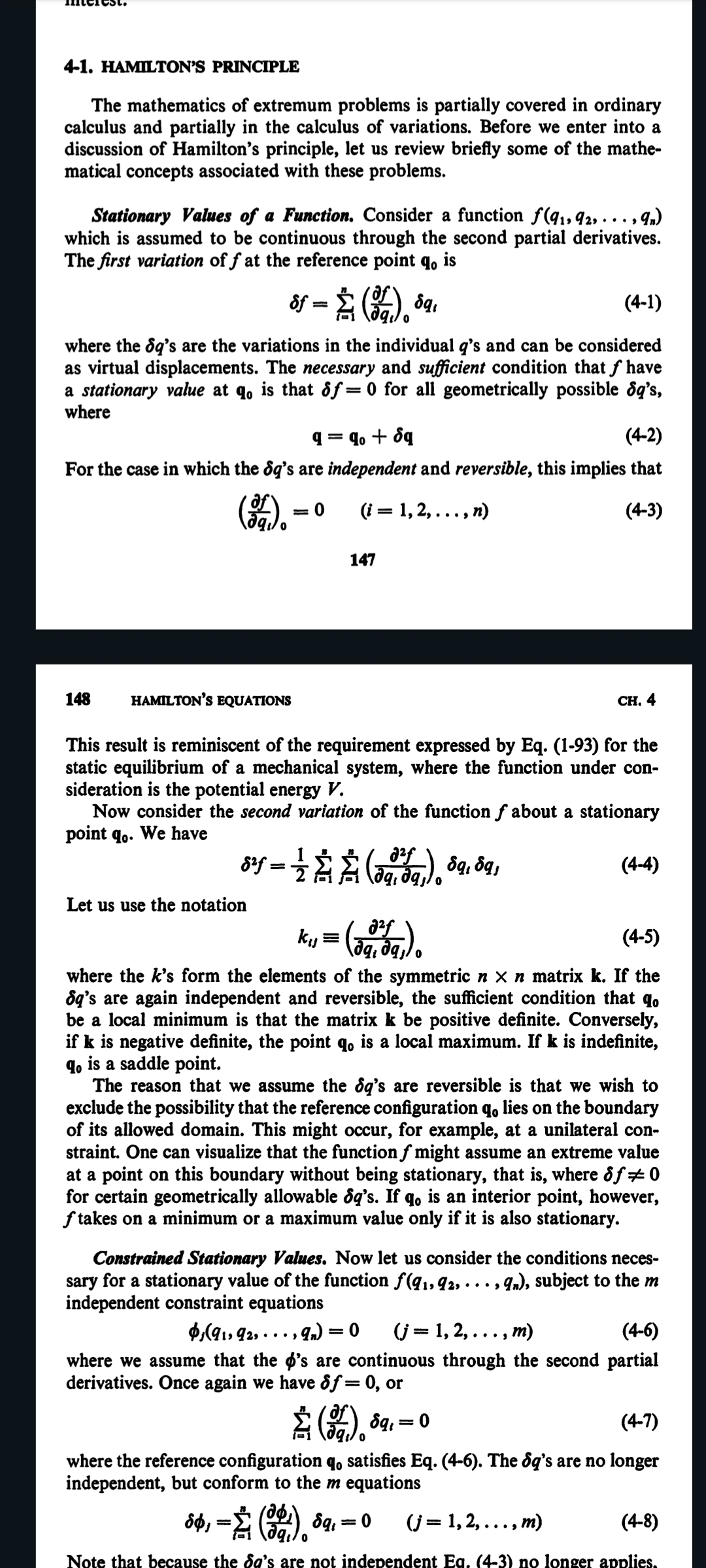What are the conditions necessary for the stationary values of a function according to Hamilton's principle?

Understand the Problem
The question concerns Hamilton's principle, particularly focusing on the conditions for stationary values of a function in the context of classical mechanics and the calculus of variations. It addresses the necessary and sufficient conditions for a function to achieve stationary values and discusses the implications of first and second variations of functions, including constrained stationary values.
Answer
δf = 0 for all δq's, and ∂f/∂qi |q0 = 0 for i = 1, 2, ..., n.
The necessary and sufficient conditions for the stationary values of a function according to Hamilton's principle are: δf = 0 for all geometrically possible δq's, and ∂f/∂qi |q0 = 0 for i = 1, 2, ..., n.
Answer for screen readers
The necessary and sufficient conditions for the stationary values of a function according to Hamilton's principle are: δf = 0 for all geometrically possible δq's, and ∂f/∂qi |q0 = 0 for i = 1, 2, ..., n.
More Information
Hamilton's principle is fundamental in classical mechanics and states that the actual path taken by a system will make the action integral stationary (typically a minimum).
Tips
Common mistakes include not ensuring the small variations δqi are independent and reversible, and not checking higher-order variations for confirming the type of stationary point (local minimum, maximum, or saddle point).
Sources
- Hamilton's principle - Wikipedia - en.wikipedia.org
- Hamilton's Principle - an overview | ScienceDirect Topics - sciencedirect.com
- 9.2: Hamilton's Principle of Stationary Action - Physics LibreTexts - phys.libretexts.org
AI-generated content may contain errors. Please verify critical information